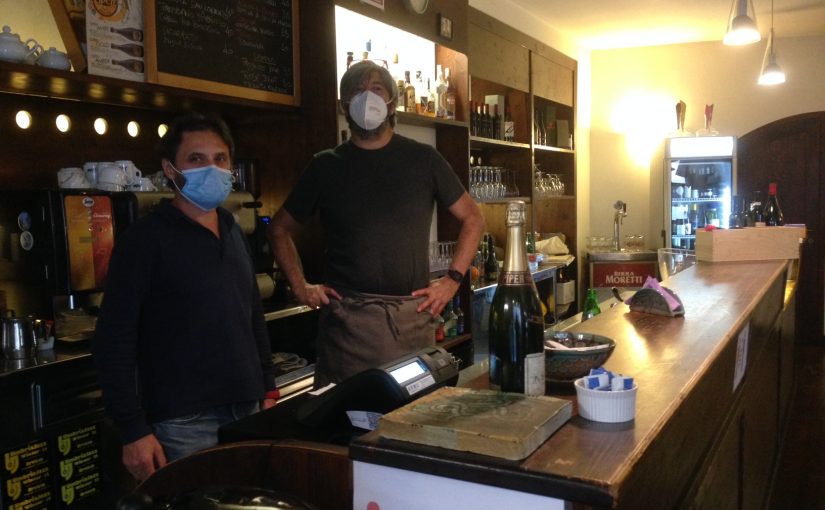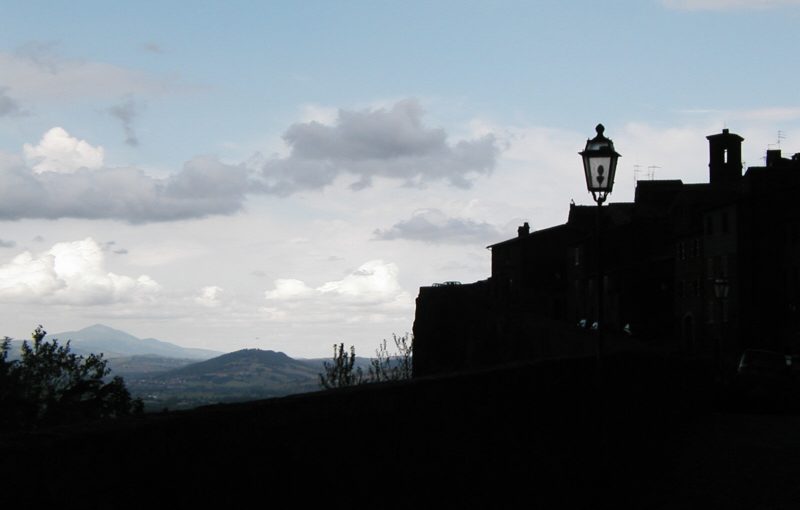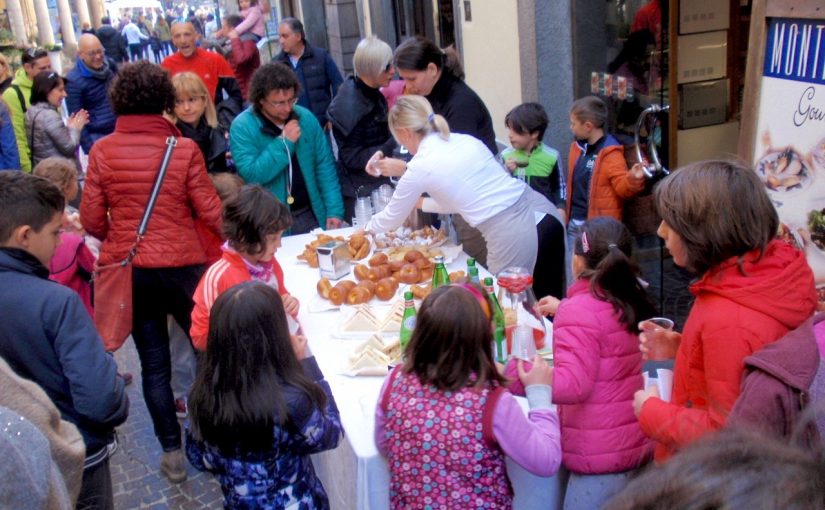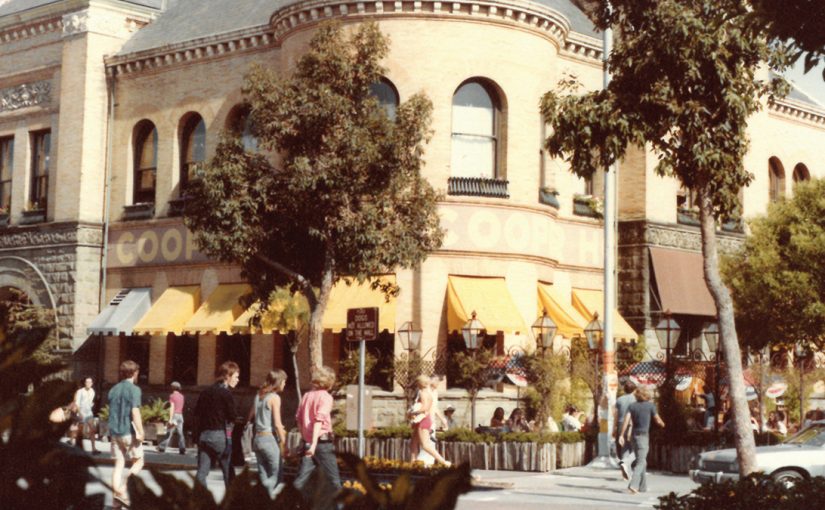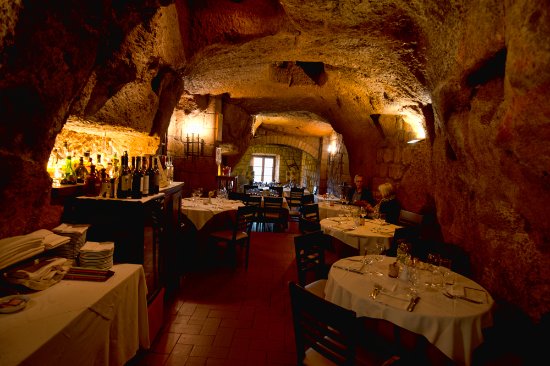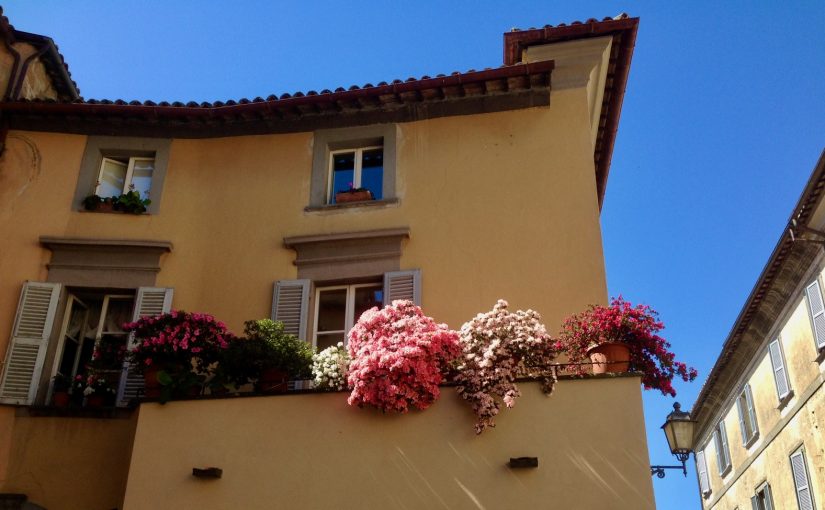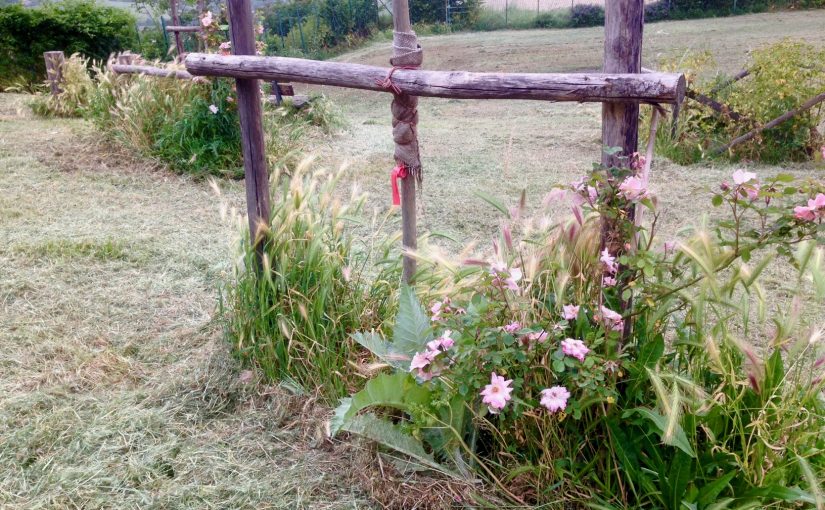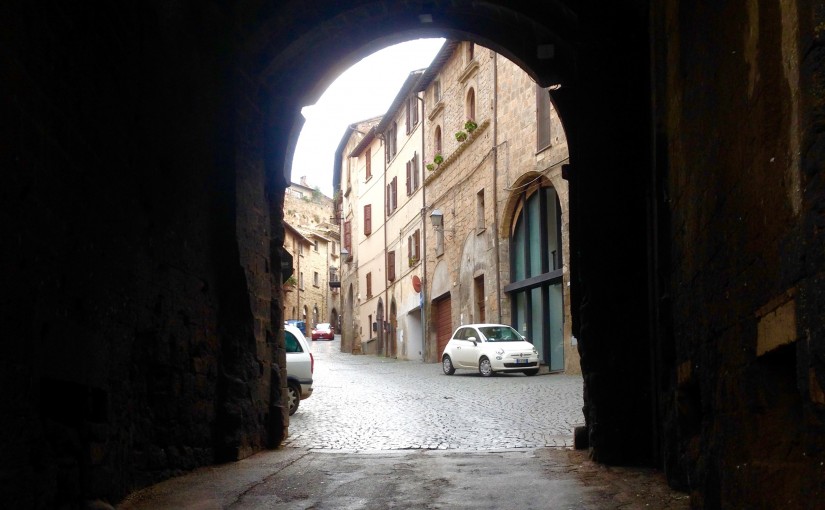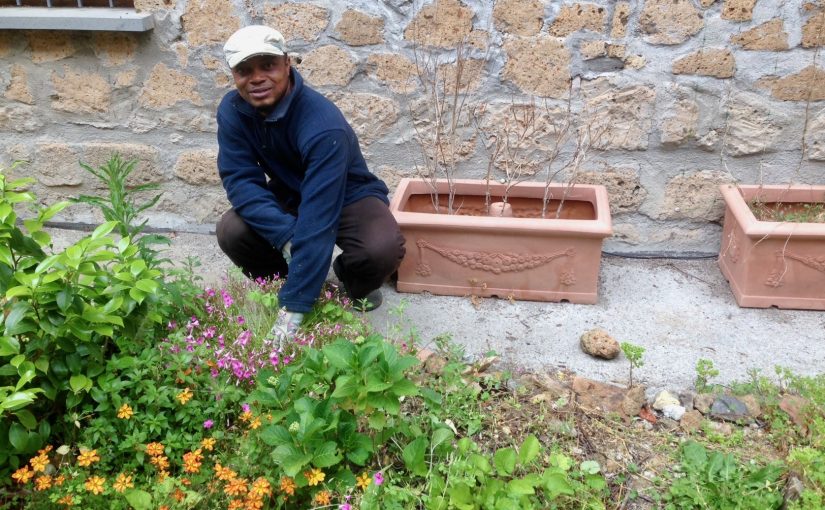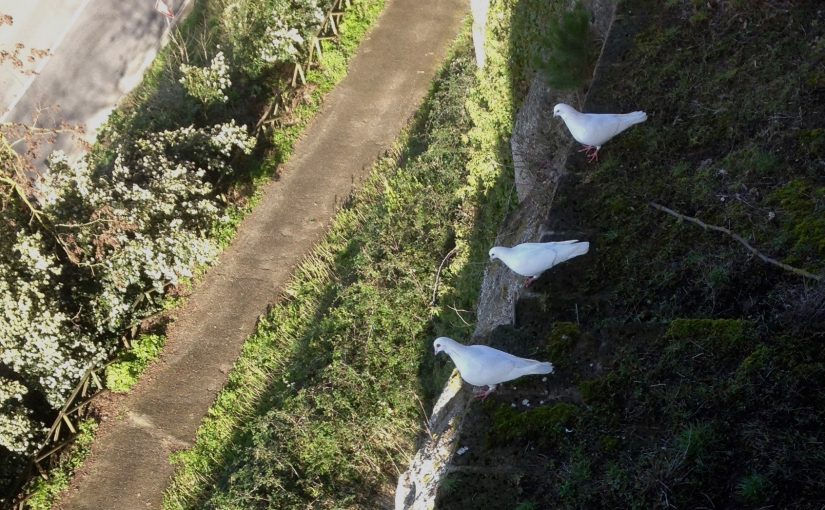IHe comes down the hill into San Giovenale’s ancient garden. The valley, a vast patchwork of green interlaced with winding roadways and punctuated with russet roofs, opens up before him. The wind runs through his longer-than-usual hair like a dog leaping through tall grass. The sudden freedom, the sheer majesty of it all, lifts his soul to meet the countless worshippers who have gathered at this spot to celebrate union with the Divine. The music swells, he reaches up to his eyes – and deftly lowers his mask. No one else is here, it’s safe.
The first act is over, even if some lockdown restrictions are still in place. Regional travel is allowed, but it will be another couple of weeks before we can go between regions for other than a handful of specific reasons. The streets are occasionally crowded now. Some restaurants are open weekends. As I was finishing lunch at Montanucci, a couple of the staff were rearranging tables in the rear courtyard to accommodate a large group. Many bars are approaching regular hours. The simple security of lockdown – stay home as much as you can and wash your hands – is over. Yet nothing simple or secure has arrived in its place.
It is intermission. You can take your eyes off the stage without a worry that you’ll miss something. Go get some air, have a drink, re-read the program for a hint at what may happen during Act Two, but understand that even the actors and the playwright have no idea what secrets Act Two reveals. We wait.
Last night I checked Vincaffè’s Facebook page, and a post dated May 21 read “Vincaffè reopens tomorrow!” followed by a paragraph dedicated to what safety measures would be in place. It is no secret that I love Stefano’s soup, so I put on my shoes and hiked down. I was the first customer, and the only for a few minutes.
“How are you Cristiano?”
“I’m okay. These are confusing times. It’s very difficult to know how to proceed.”
“Yeah, it’s hard for everyone,” I said, meaning to commiserate. Instead Cristiano smiled, agreed, and changed the subject. In the face of a global crisis our personal problems quickly grow small, seem trivial or incidental. I wish I’d said nothing and let him talk.
Or maybe he didn’t change the subject at all.
“When are the expats coming back?” he asked.
“A few are coming in June, but most that I know of have plans for September.”
“Nobody here all summer?” There was a hint of panic in that.
“Not many.” He repeated for Stefano.
I ordered soup; tomato with wheat berries and beans. A few minutes later he brought the bread and a napkin, then a few after that, a knife and fork.
“Do I need a knife to cut the soup?” I asked.
“You might. How about the fork, shall I leave the forchetta?”
By now I was confused enough that I thought he was offering a side dish of porchetta, and while I didn’t want it, neither did I want to be rude and turn it down.
The soup was among the best I’ve had. About halfway through the bowl, the lights went out. Cristiano made a call, checked the neighborhood, determined nothing, turned to the mostly empty room, and shouted, “Coronavirus!” The lights came on.
The side dish of pork never arrived. As he returned to clear I asked him about the fork.
“I’m in a fog tonight, that’s all.”
I tried to explain my mixup between pork and fork, but it ended up an apology for my Italian.
“Your Italian is fine, it’s these masks make it harder to understand.”
“Yeah, I depend a little on reading lips, and there are no lips to read.”
He repeated the last part of that and gently laughed.
Today was Maria’s birthday. I bought her a mandevilla vine with white flowers, and we discussed where best to plant it so it would survive the winter.
“I don’t usually do much for my birthday,” she had told me on Tuesday. Today, as I was leaving for San Giovenale’s garden, we took a few swipes at the strangeness of these times.
“This is my first birthday like this.”
“What do you mean?”
“Usually there are a few friends, my sister, we toast, have an apertivo, some little thing. This year, nothing. So, an extra thanks for the plant.”
As I stumbled down into the garden, I wished I had offered to fashion a brindisi for Maria’s birthday, but I’ve all but stopped carrying my phone, and when I passed by her shop later to offer, she had already left. She had said she would spend Sunday at home, none of the other shops on the craftsperson’s alley would be open, so what’s the point. Then added that the curio shop across the way would not reopen, and that Vincaffè had wanted that location when it was available several years ago. Their current position where Via Filippeschi meets Malabranca is too far away.
“They used to be full, all the time,” she said, “the whole street leading down was a hive of activity. Now, they are at the end of town.”
Headlines announced there would be 17 million euro for public projects granted Orvieto in the coming months. Yesterday is was four million. That either means we can expect 21 million, or every day the amount quadruples. I vote for the later.
The bell will ring when it’s time to resume your seat. In the meantime, notes on intermission will continue, maybe even daily.
Photo: Stefano on the left, Cristiano on the right.
